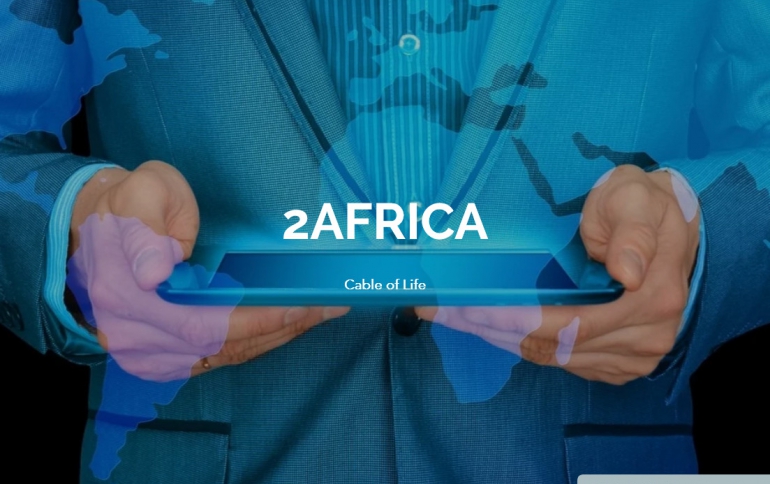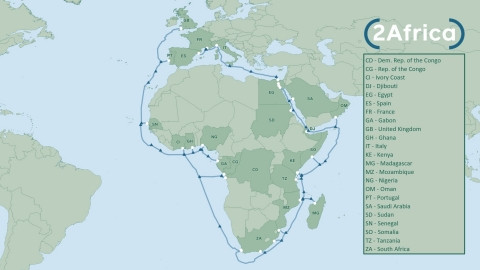
Facebook Works With Telecoms on 2Africa Subsea Cable for Future Internet Connectivity
China Mobile International, Facebook, MTN GlobalConnect, Orange, stc, Telecom Egypt, Vodafone and WIOCC will partner to build 2Africa, which will be the most comprehensive subsea cable to serve the African continent and Middle East region, and also connects via east Africa with other subsea cables for expanded connectivity to Asia.
The parties have appointed Alcatel Submarine Networks (ASN) to build the cable in a fully funded project which will greatly enhance connectivity across Africa and the Middle East.
At 37,000km long, 2Africa will be one of the world’s largest subsea cable projects and will interconnect Europe (eastward via Egypt), the Middle East (via Saudi Arabia), and 21 landings in 16 countries in Africa. The system is expected to go live in 2023/4, delivering more than the total combined capacity of all subsea cables serving Africa today, with a design capacity of up to 180Tbps on key parts of the system. 2Africa will deliver internet capacity across large parts of Africa, supplement the fast-growing capacity demand in the Middle East and underpin the further growth of 4G, 5G and fixed broadband access for hundreds of millions of people.
In countries where the 2Africa cable will land, service providers will obtain capacity in carrier-neutral data centres or open-access cable landing stations on a fair and equitable basis.

The 2Africa cable has been designed to improve resilience and maximise performance, including the option of an optical crossing between East Africa and Europe. The 2Africa parties and Airtel have signed an agreement with Telecom Egypt to provide a new crossing linking the Red Sea and the Mediterranean, the first in over a decade. This includes new cable landing stations and deployment of next-generation fibre on two new, diverse terrestrial routes parallel to the Suez Canal from Ras Ghareb to Port Said, and a new subsea link that will provide a third path between Ras Ghareb and Suez.
The 2Africa cable will implement a new technology, SDM1 from ASN, allowing deployment of up to 16 fibre pairs instead of the eight fibre pairs supported by older technologies, bringing much greater and more cost-effective capacity. The cable will incorporate optical switching technology to enable flexible management of bandwidth. Cable burial depth has also been increased by 50% compared to older systems, and cable routing will avoid locations of known subsea disturbance.
The cost of the project is said to be just under $1 billion.
Facebook and Google behind about 80% of the recent investment in transatlantic cable, driven by demand for fast-data transfers used for streaming movies to social messaging.
Facebook has long tried to lead the race to improve connectivity in Africa in a bid to take advantage of a young population, greater connectivity and the increasing availability and affordability of smartphones. The U.S. social-media giant attempted to launch a satellite in 2016 to beam signal around the continent, but the SpaceX rocket carrying the technology blew up on the launchpad.
Google announced its own sub-sea cable connecting Europe to Africa last year, using a route down the west coast.





















